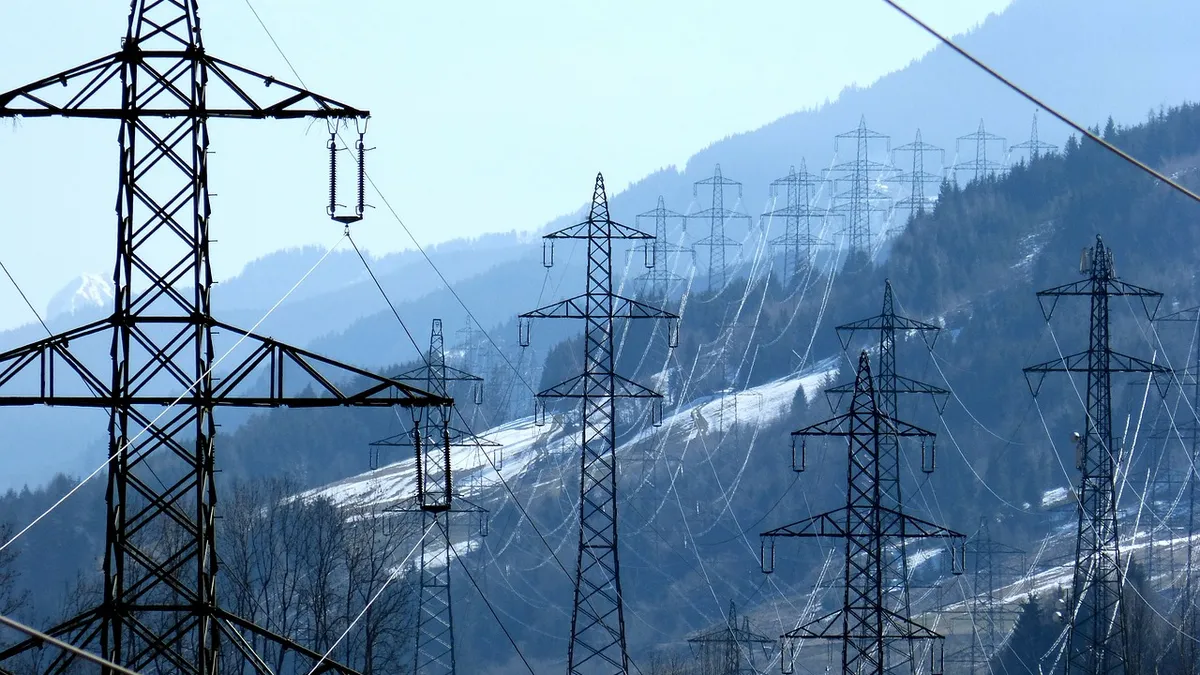A solution to Michigan's Upper Penninsula (U.P.) power woes could be just months away, but it can't come soon enough as customers in the region could be on the hook for about $100 million to keep expensive and inefficient generation operating.
The immediate need for new generation is simple, though how the region reached such a precarious position is anything but. "A lot of moving pieces," is how the CEO of Wisconsin Energy put it recently.
The Upper Peninsula of Michigan, home to about 300,000, is primarily served by We Energies' Presque Isle Power Plant, a coal facility with capacity of 431 MW now operating as a system support resource for the Midcontinent Independent System Operator system.
When Cliffs Natural Resources, a mine operator, switched power suppliers last year, the company took with it about 85% of Presque Isle's demand—along with the economic incentive for Wisconsin Electric to continue operating the facility.
To keep the lights on, MISO required Wisconsin Energy to keep generating power from the facility and federal regulators have approved a tariff that allocates most of the cost—almost $100 million—to ratepayers in the region.
The Michigan Response
Unsurprisingly, the tariff did not go over well in Michigan. The state senate responded by passing a resolution condemning that decision and asking FERC to "reverse its recent acceptance of the [MISO]'s proposed system support resource cost allocation tariff that would allocate approximately 99.5% of costs to utility customers in Michigan's Upper Peninsula."
The senators instead asked FERC to allocate costs in a way more "mindful of the historical context and the American Transmission Company's cost allocation agreement," referencing a cost allocation structure that was later challenged.
Michigan's U.S. Senators Debbie Stabenow and Carl Levin both sent letters to FERC Chairman Cheryl LaFleur, calling for a moratorium on the cost allocation decision while the agency considers the Michigan Public Service Commission's complaint.
"Residents and businesses in the region already pay extremely high energy costs because of the region's significant power transmission and supply challenges," the senators said.
The region is already struggling with high unemployment, growing numbers of retirees and an average median household income of only $39,400, the senators explained.
"We are deeply concerned about the negative impact that these dramatic rate increases will have," they wrote. "Reports indicate that small businesses could be forced to shoulder annual increases of several hundred thousand dollars, which would create an unreasonable drag on the region's economy."
Transmission or Generation?
Broadly speaking, the solution is either expanding transmission to northern Michigan or building more generation. In 2012, when it became apparent that EPA rules on emissions could endanger the Presque Isle facility, American Transmission Co. estimated it could build lines to boost reliability into the region for about $1 billion.
But the tide seems to have turned against transmission solutions, and not just for the immediate price tag. Lawmakers are increasingly worried that a transmission solution also puts the power supply in the control of another state—Wisconsin—potentially leaving them on the hook with larger bills. Wisconsin is geographically closer to the Upper Peninsula than the rest of Michigan, meaning that transmission proposals involved transporting power from out-of-state generators.
Michigan state Rep. Scott Dianda (D-Calumet) introduced a resolution encouraging legislative support for the construction of new electricity generating facilities in the Upper Peninsula. Without more generation, he said, the region “will be forced to rely on the construction of transmission lines to import power from Wisconsin. This is an expensive option that will inhibit economic growth, and will likely fail to meet the region’s future demand for capacity.”
Michigan Gov. Rick Snyder (R), along with the state's attorney general and Reps. Fred Upton (R-Kalamazoo) and Dan Benishek (R-Upper Peninsula), petitioned FERC in an Oct. 27 letter to ensure generation solutions are given equal consideration.
"The current system seems to assume that transmission is always the right answer—in short, the current structure's only tool is a hammer, and it is trying to fix every situation with a nail," the delegation wrote to FERC. "We believe that sometimes transmission is the appropriate investment. But sometimes it is not."
Increasingly, it seems generation is the way Michigan wants to go. And last week during Wisconsin Energy's quarterly earnings call, the company's leadership indicated it would be willing to help with that solution.
CEO Klappa noted that the company has been "very actively involved" in discussions about a solution for the Upper Peninsula, and said "we have indicated we would be willing to be an investor, as part of that solution."
Pressed on the comment by analysts, company management gave a few more details: There is some discussion of renewable energy, but the primary solution will likely be new combined-cycle gas capacity. Somewhere between 250 MW and 350 MW will likely be required, and some kind of decision is likely in the next 60 to 90 days.
Klappa stressed that much of this is guesswork—there are a lot of parties involved, and the issues are complicated. But one thing does seem to be clear, he said. "I think clearly the preference of the administration is building additional generation in the U.P. And we have indicated we would be willing to be an investor, as part of that solution."
A spokesman for Wisconsin Energy said the eventual approach to addressing a long-term reliability solution in the Upper Peninsula will be "the end result of a collaborative effort of a number of entities, including the Governor’s energy team, potential investors, local leaders and key power customers such as the owners of the Tilden and Empire Mines." The two mines are operated by Cliffs Natural Resources.
The spokesman said the company has made it clear to the Governor's team that Wisconsin Energy "would like to work with them to help find a solution to the generation needs in the U.P. and that we would be willing to invest in U.P. generation through a non-utility subsidiary."























